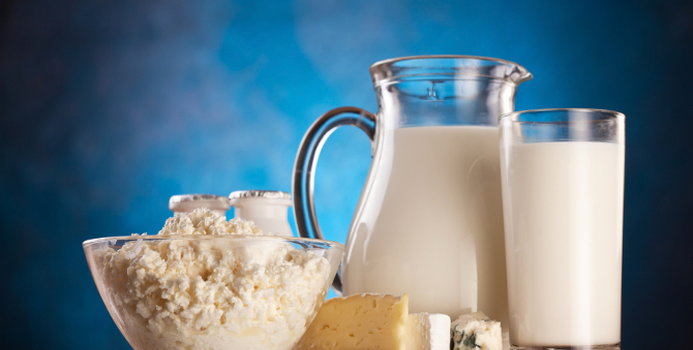Milk is a staple in many peoples' daily diets. Whether you drink a glass or pour some over your cereal, milk is most commonly consumed with breakfast and adds some nutrition to your morning meal. If you're concerned about gaining weight by drinking milk regularly, say a couple glasses each day, you first need to understand how weight gain happens and why monitoring your overall calorie intake is important to maintaining or losing weight.
Calories In, Calories Out
Milk, like any other food you consume, contains calories. An 8 ounce glass of whole milk contains approximately 150 calories; 2% milk contains about 140 calories; 1% contains about 100 calories; skim milk (non-fat milk) contains about 80 calories. Consuming too many calories is what causes people to gain weight. It really is quite simple: eat more than you burn off and you'll gain weight. To keep from gaining weight, you don't need to avoid certain foods. Truly, you could eat two Big Macs each day and not gain any weight if that were all you consumed during that 24-hour period. Drinking milk won't cause you to gain any weight if it's part of a healthy balanced diet within a reasonable calorie range.
Making Your Foods Count
How many calories you need depends on a few factors, including your age, current weight, height and activity level. Let's say that the you need 1900 calories each day to maintain your weight. Drinking milk won't cause weight gain as long as you stay in that 1900 calorie range--even if it is whole milk. In fact, it's probably beneficial to be drinking a glass or two of milk daily because milk is so nutritious. Filled with vitamins A and D, calcium and protein, drinking milk is a healthy way to satisfy your hunger. In any kind of healthy diet you should be looking to consume foods that give you more "bang for your buck," meaning foods that are filled with vitamins, minerals and nutrients your body needs for a moderate number of calories. These foods will keep keep you full and alert during your day. Milk qualifies as one of these foods. It doesn't contain empty calories.
Still Concerned? Opt for Low-Fat Versions
If you're calorie- or weight-conscientious, you'll want to opt for low fat milk instead of whole milk or 2%. If you consume three cups of milk daily, switching from 2% milk to skim milk will save you about 180 calories each day. That adds up to 1260 calories a week--in nearly three weeks you'll lose a pound just from switching your milk alone! Generally, it's better for adults to try to consume foods that are low in fat, so if you're a fan of whole milk or 2%, switching to 1% or skim milk will be beneficial to your health.
In short, drinking milk does not cause weight gain unless you exceed your daily allotted number of calories by drinking it.



